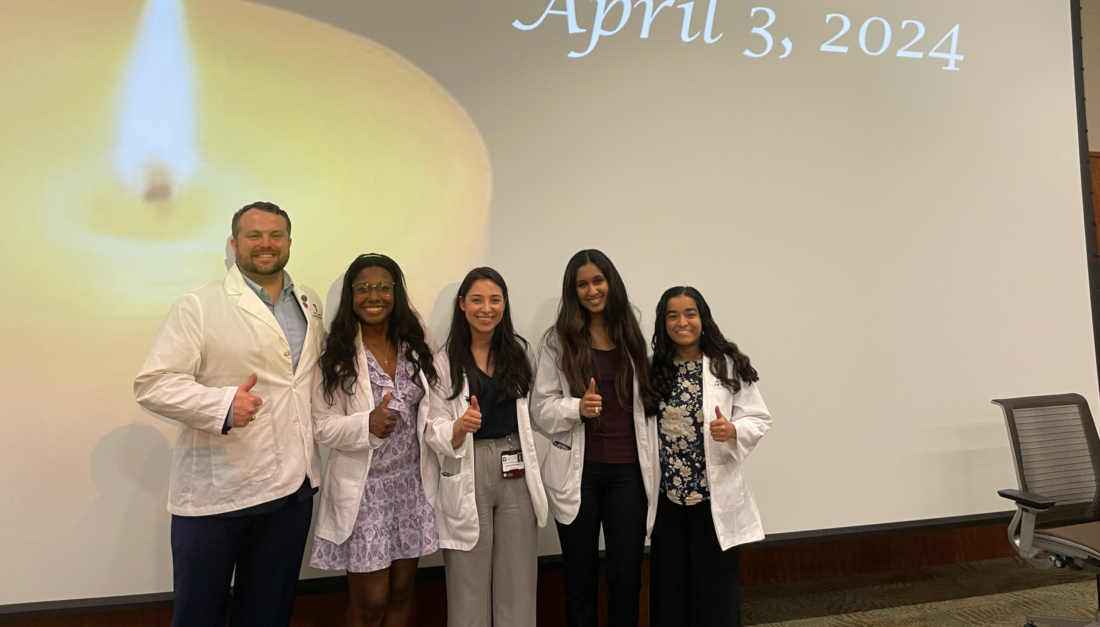National Depression Screening Day shines light on mental health treatment

Depression is one of the most common mental disorders in the United States. In 2017, 17.3 million American adults had a depressive episode.
That’s why participating hospitals, colleges and community groups host National Depression Screening Day every October to raise awareness about major depression and offer screenings for the public.
Because people experiencing major depression tend to isolate themselves, seeking help is one of the biggest barriers to receiving help.
Bradley Bogdan, LCSW-S, clinical social work supervisor in the Department of Psychiatry in the Texas A&M College of Medicine, explains the importance of depression screening and describes how people can initiate mental health treatment.
“If you have a cough or your leg hurts, you generally reach out and try to get help,” Bogdan started. “But if you’re depressed and you’re isolating yourself, you’re less likely to come to a doctor’s office, you’re less likely to go see a therapist, you’re less likely to leave your room.”
When a person does decide to book an appointment, they can first expect to complete a depression screening form, most likely the Patient Health Questionnaire-9. This form, which has nine questions, briefly assesses facets of mental health ranging from sleep quality to self-harm.
However, this form alone does not solidify whether or not a person has depression. If the questionnaire score leans toward that diagnosis, the health care professional will want to better understand the patient’s situation. Bogdan emphasized, for instance, how people sometimes mistake a normal emotional response for chronic depression.
“Say, if you’re dog died yesterday, that’s a little different from if you’ve been feeling depressed for the last six months,” he explained.
Despite the ease of administering the questionnaire, not all health professionals consistently screen for depression. Some initiatives even incentivize depression screening; still, many physicians fail to check on their patients’ mental health.
That’s where this awareness day every October comes in. “The original goal of National Depression Screening Day is to point out how doctors don’t typically include depression screening as part of their routine,” Bogdan said.
Filling out a depression screening form at a doctor’s office isn’t the only option, however. Online versions of the Patient Health Questionnaire-9 are available, which can be useful both for people who are hesitant to visit the doctor and those whose providers simply don’t ask.
“If somebody is curious where they might fall, they can search for a screening form in their favorite search engine,” Bogdan said. “The screening forms provided by the World Health Organization are easy to find, publicly available and free.”
In fact, there is no harm in filling out the questionnaire even if you don’t think you have any symptoms. Although many factors contribute to depression, psychological research has found that genetics play a large role in mental health.
“If you’ve had biological family members who have needed depression treatment in the past or who even committed suicide, that’s certainly places you at a greater risk of having those symptoms yourself,” Bogdan said. “But that’s just a risk factor, not concrete.”
Regardless of family history, depression can creep up on anybody, and receiving treatment is critical in alleviating—or at least managing—symptoms. Bogdan suggests that the strong stigma surrounding mental health may discourage people from seeking treatment. He urges anybody who doesn’t feel like themselves to reach out for professional help without shame.
“It is okay to go access treatment and talk to somebody,” Bogdan encouraged. “It’s totally fine to go into your primary care provider or—if you’re in college or graduate school—student health or student counseling and say, ‘Things aren’t working, please help.’”
Article written by Sarah Allen
Media contact: media@tamu.edu


